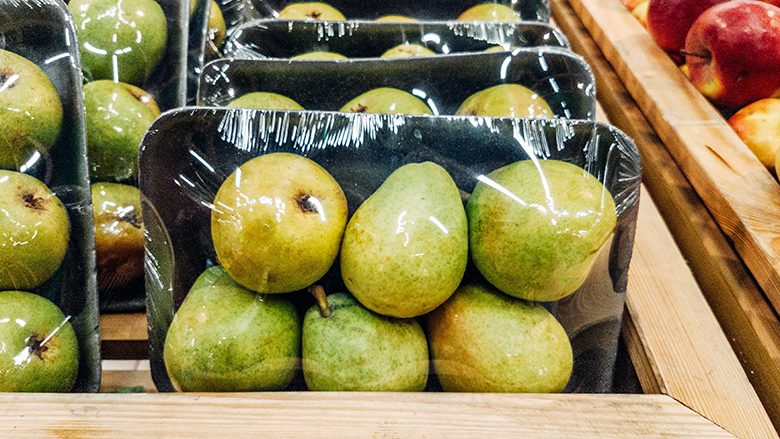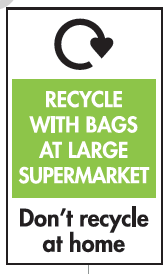OPRL labelling rules change to support flexibles recycling

With recent announcements of major industry initiatives seeking to drive up recycling of plastic bags and wraps, OPRL is amending its labelling rules to include PP films from 1 January 2022. This move will bring PP flexible packaging into line with PE films, significantly broadening the range of soft packaging consumers can recycle at front of store.
 Based on supermarket and brand plans delivering on commitments under The UK Plastics Pact and supported by the £1 million Flexible Plastics Fund, OPRL says it is confident collections will be widely available across the UK (ie to more than 75% of the population) for non-metallised mono-polymer polypropylene film by January 2022, and that the material will be sorted and go on for processing into new packaging and products. PP films with less than 5 percent PE or EVOH can therefore be labelled with OPRL’s Special Films label from next January, as PE films. Work is in hand to establish the availability of processing capacity and functioning markets for metallised crisp, snack and chocolate wrappers, also covered by some of the new in-store collections network, in the hope that these too can be labelled as recyclable in the near future.
Based on supermarket and brand plans delivering on commitments under The UK Plastics Pact and supported by the £1 million Flexible Plastics Fund, OPRL says it is confident collections will be widely available across the UK (ie to more than 75% of the population) for non-metallised mono-polymer polypropylene film by January 2022, and that the material will be sorted and go on for processing into new packaging and products. PP films with less than 5 percent PE or EVOH can therefore be labelled with OPRL’s Special Films label from next January, as PE films. Work is in hand to establish the availability of processing capacity and functioning markets for metallised crisp, snack and chocolate wrappers, also covered by some of the new in-store collections network, in the hope that these too can be labelled as recyclable in the near future.
OPRL is the only evidence-based UK recycling labelling scheme, taking into account not only what is collected for recycling but also the availability of infrastructure to sort and reprocess packaging and effective markets for the resulting recycled material. On-pack labelling is used by 9 out 10 of consumers for information on whether they can recycle items.
Jane Bevis, chair of OPRL said: “It’s exciting that the long-established major supermarkets’ network of front-of-store collections for PE films is being extended and strengthened and will now encompass a broader range of bags and wrapping. That means from January consumers will be able to take many more types of packaging for recycling at their local supermarket.
“Our research shows 30 percent of us are receiving more bags and wrapping at home as our shopping habits change, so it’s vital we capture this material for recycling and develop the processing capacity – preferably here in the UK – to ensure these resources are incorporated into new packaging or products.”
Margaret Bates, executive director of OPRL Ltd, went on to explain: “Mono-polymer PP without heavy coatings or metallisation is an important first step in extending our advice to consumers, bringing pasta, biscuit and other everyday packaging in line with bread, veg and fruit, and loo roll bags. We hope processing solutions and new markets are found for other bags and wraps such as crisp packets and metallised sweet and chocolate wrappings in the near future, but until then the ‘Don’t Recycle’ label will continue to apply to these.
“We’re very conscious that our labels are trusted by consumers because they constitute a ‘promise’; 95 percent of people are confident they understand our ‘Recycle’ label and that if they put packaging bearing it in the right bin then it will be recycled. We respect and value that trust, built up over 12 years of labelling packaging. So we’re committed to verifying the necessary infrastructure is in place to deliver on that promise, and that markets exist to make this an economically viable and sustainable process
“The partnerships that have come together to deliver these industry initiatives are powerful drivers of change so we hope that evidence confirming the scale of accessible infrastructure and markets will be forthcoming very soon. That will enable us to give a simple and clear message to consumers, making it easier to engage them in active recycling.”
Related content
Source: foodanddrinktechnology.com

